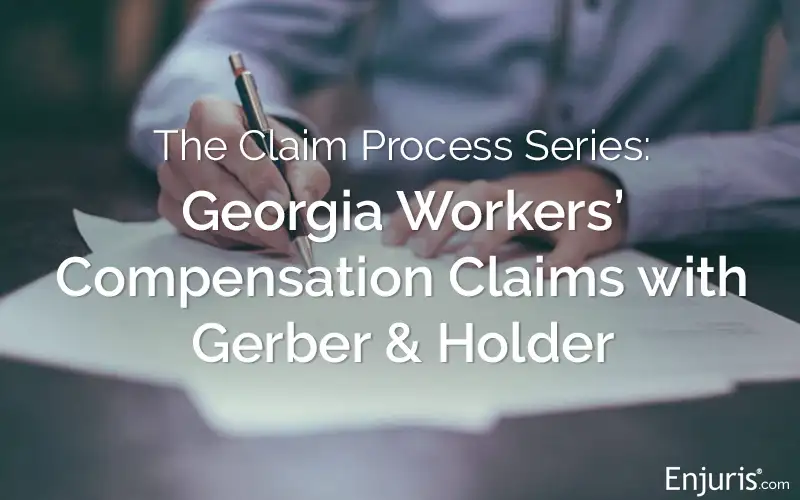
Workers’ compensation is a form of insurance that pays medical expenses and lost wages to employees who are injured while doing their job.
When most people think about work-related injuries, they think about physical injuries like back pain, burns, and carpal tunnel syndrome.
But what about posttraumatic stress disorder (PTSD) and other psychological injuries?
Though the term “PTSD” wasn’t accepted as a clinical diagnosis until 1980, the condition has long been associated with military veterans—previously going by terms like “shell shock,” “soldier’s heart,” “combat fatigue” and “war neurosis.”
In recent years, people's understanding of the impact and prevalence of PTSD has expanded. In particular, it’s now understood that first responders, including firefighters, paramedics, and police officers report higher than average instances of work-related PTSD.
A growing number of states, including Georgia, are now awarding workers’ compensation benefits for PTSD and other mental injuries. There are, however, some important limitations that injured workers should know about.
Our Atlanta legal team at Gerber & Holder Workers’ Compensation Attorneys published a comprehensive report on work-related PTSD, in which we took an in-depth look at workers’ compensation laws for “mental-only” injuries — not just in Georgia, but in every state.
Here’s an overview of what we found:
Can you receive workers’ compensation for PTSD and other mental injuries in Georgia?
Under Georgia law, an injured worker can collect workers’ compensation benefits for a psychological injury only if a physical injury occurs in the same instance as the PTSD. The physical injury can be nominal, but there has to be a physical injury. Additionally, the PTSD claim can proceed beyond the existence of the physical injury, but the genesis must be the same.
To put it another way, if your work-related physical injury occurs at the same time or worsens your mental injury, then you’re entitled to benefits for the mental injury. But if you only suffer a mental injury without a corresponding physical injury, you probably won’t be able to recover under the workers’ compensation system in Georgia.
Let’s look at 3 examples:
Though Bob wasn’t physically injured during the confrontation, he experiences nightmares and anxiety as a result of the incident. He is later diagnosed with PTSD.
Can Bob receive workers’ compensation for his PTSD?
Probably not. Bob’s PTSD wasn’t caused or worsened by a physical injury, so he will likely be unable to get workers’ compensation benefits under Georgia’s current law.
Can Colter receive workers’ compensation for his PTSD?
Yes. Colter should be able to receive workers’ compensation for his PTSD because it is connected to a compensable physical trauma (his spinal injury).
Can Kelly receive workers’ compensation for her PTSD?
Yes. Kelly should be able to receive workers’ compensation because her PTSD was worsened by a compensable physical injury.
How do other states handle work-related mental injuries?
All states have different laws when it comes to workers’ compensation and mental injuries.
As of October 2019, 9 states have passed workers’ compensation laws that generally cover mental injuries like work-related PTSD. Twenty-eight states offer limited coverage for mental injuries in certain circumstances (such as in sudden or unusual circumstances, or just for first responders). Thirteen states offer no coverage whatsoever.
What now?
Though most states have laws in place dealing with work-related mental injuries, these laws are subject to change. Several states are currently researching whether mental injury claims like occupational PTSD should be covered under workers’ compensation.
Utah, for instance, has passed legislation establishing a commission to study the compensability of mental stress claims from first responders with PTSD.
Do I need a lawyer?
The reality is that receiving workers’ compensation benefits for PTSD is an uphill battle for many injured workers. Insurance companies are often skeptical of mental illness claims — in part, because these injuries cannot be “observed” like a broken bone or lost limb.
What’s more, in Georgia, even if you prove your mental injury, you have to prove a clear connection between your physical injury and mental condition.
To successfully recover the compensation you deserve, it’s important to find an experienced workers’ compensation attorney as soon as possible so that you and your attorney can start gathering evidence and preparing your claim.



 If you or a loved one have been seriously injured on the job, or suffered an occupational injury, you should know that you have legal rights under the Georgia workers’ compensation law. At Geber & Holder Law, our Atlanta attorneys can tell you what those rights are and we’ll fight aggressively on your behalf to negotiate a fair settlement—and even take your case to the highest court in the land if necessary. We see every client as an individual with a unique story and important concerns. Our law firm has served our clients faithfully in every case. By doing so, we have been able to build a history of success stories by securing large workers’ compensation settlements and payouts. Most importantly, we’ve been able to change the lives of our clients, helping them recover physically, emotionally and financially. View
If you or a loved one have been seriously injured on the job, or suffered an occupational injury, you should know that you have legal rights under the Georgia workers’ compensation law. At Geber & Holder Law, our Atlanta attorneys can tell you what those rights are and we’ll fight aggressively on your behalf to negotiate a fair settlement—and even take your case to the highest court in the land if necessary. We see every client as an individual with a unique story and important concerns. Our law firm has served our clients faithfully in every case. By doing so, we have been able to build a history of success stories by securing large workers’ compensation settlements and payouts. Most importantly, we’ve been able to change the lives of our clients, helping them recover physically, emotionally and financially. View 